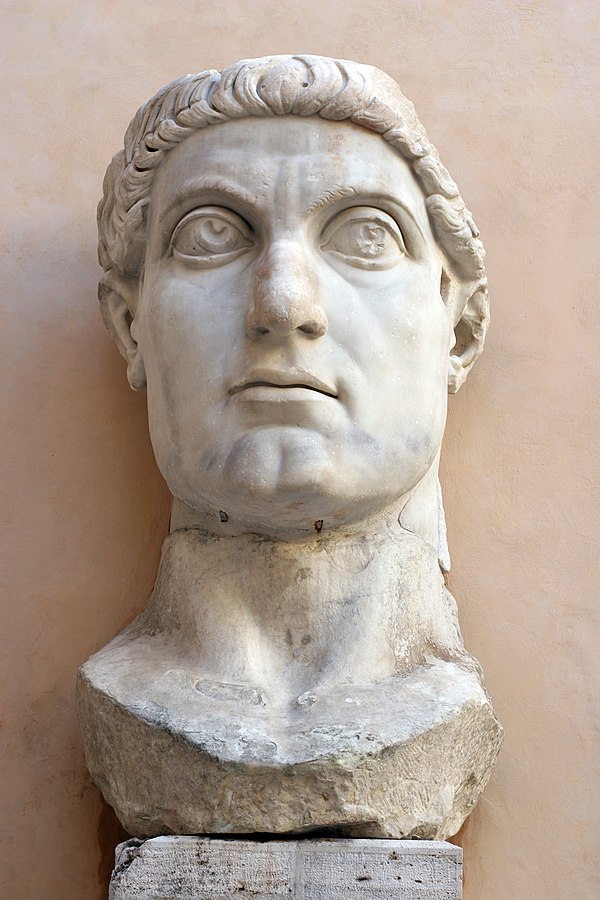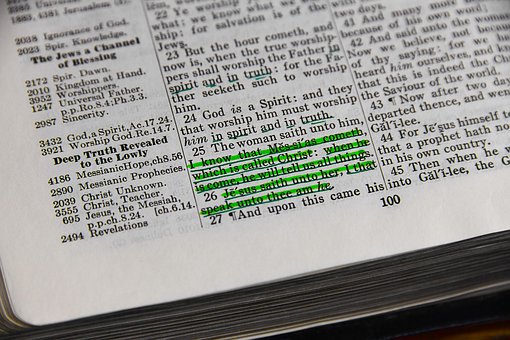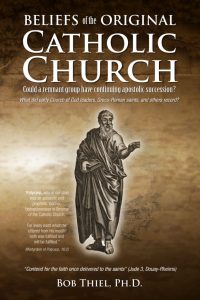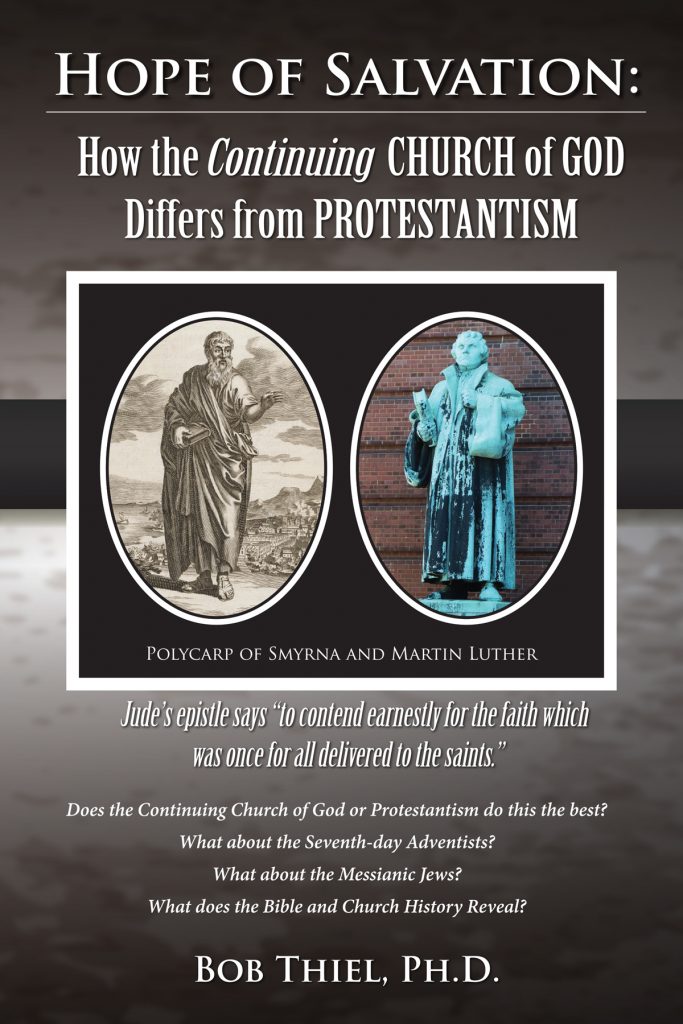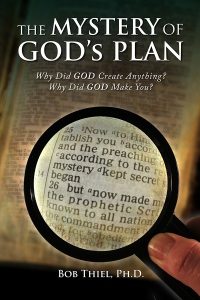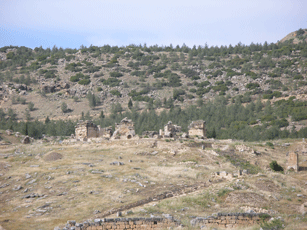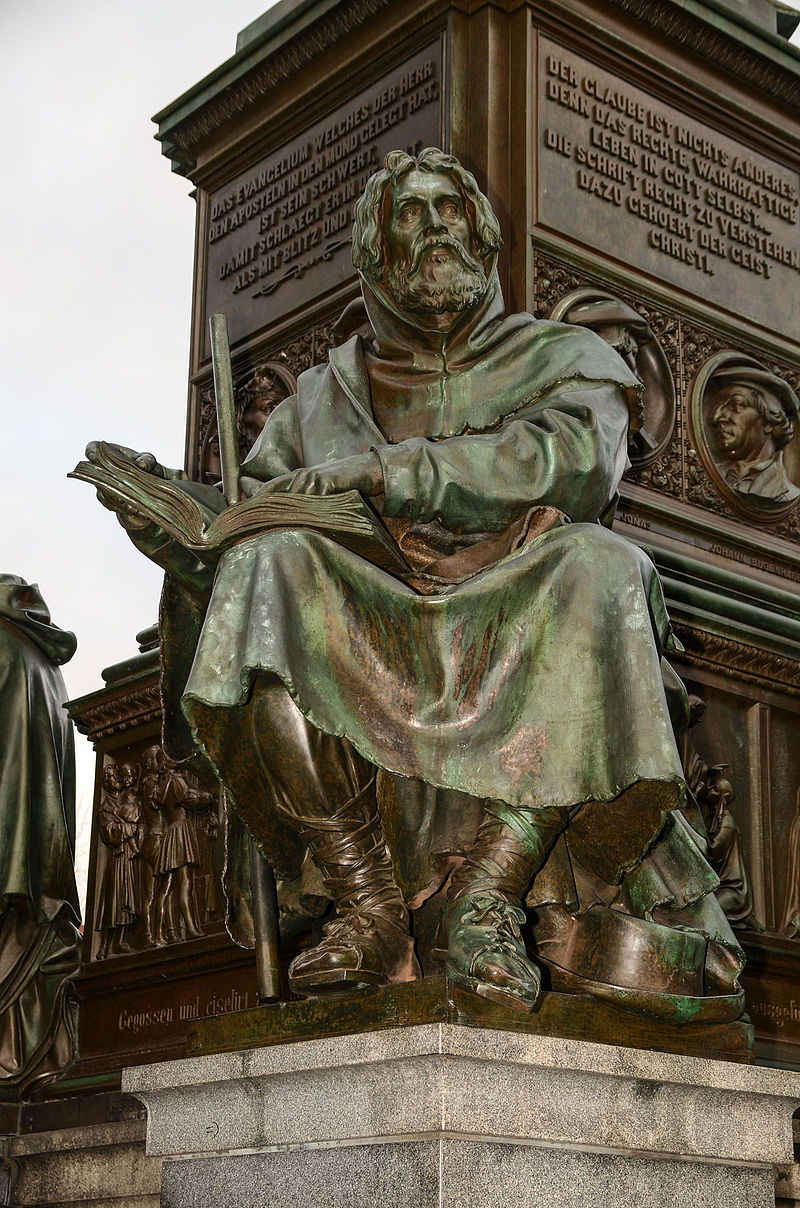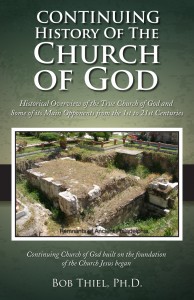Did you know that Easter was supposed to be Passover?
Monday, March 10th, 2025
Many people will be observing Easter on April 20, 2025. It is one of the years that the Roman Catholics, Eastern Orthodox Catholics, and most Protestants will keep it on the same day.
Is it an original holiday of the Church? What was it supposed to be? What do religious scholars teach about it?
What does the Church of Rome teach about it?
The Catechism of the Catholic Church teaches:
1170 At the Council of Nicea in 325, all the Churches agreed that Easter, the Christian Passover, should be celebrated on the Sunday following the first full moon (14 Nisan) after the vernal equinox (Catechism of the Catholic Church. Imprimatur Potest +Joseph Cardinal Ratzinger. Doubleday, NY 1995, p. 332).
From this, notice that it is taught that what is now called Easter was originally observed as a change in the date of Passover. It originally was not a Christian resurrection holiday.
Furthermore, the Roman Catholics and Eastern Orthodox Catholics later picked different Sundays to observe it a while after the Council of Nicea. Some hope that the 1700th anniversary of that council this year will result in the trinitarians all agreeing to keep the same Sunday going forward.
Easter itself is not a Christian term, and its celebration contains pagan elements. The Catholic Encyclopedia notes:
The English term, according to the Ven. Bede (De temporum ratione, I, v), relates to Estre, a Teutonic goddess of the rising light of day and spring…Easter is the principal feast of the ecclesiastical year. Leo I (Sermo xlvii in Exodum) calls it the greatest feast (festum festorum), and says that Christmas is celebrated only in preparation for Easter…The connection between the Jewish and the Christian Pasch explains the movable character of this feast. Easter has no fixed date, like Christmas, because the 15th of Nisan of the Semitic calendar was shifting from date to date on the Julian calendar. Since Christ, the true Paschal Lamb, had been slain on the very day when the Jews, in celebration of their Passover, immolated the figurative lamb, the Jewish Christians in the Orient followed the Jewish method…For this observance they claimed the authority of St. John and St. Philip.
In the rest of the empire another consideration predominated. Every Sunday of the year was a commemoration of the Resurrection of Christ, which had occurred on a Sunday. Because the Sunday after 14 Nisan was the historical day of the Resurrection, at Rome this Sunday became the Christian feast of Easter…
Men and women…In the Neumark (Germany) on Easter Day the men servants whip the maid servants with switches; on Monday the maids whip the men. They secure their release with Easter eggs. These customs are probably of pre-Christian origin (Reinsberg-Düringsfeld, Das festliche Jahr, 118)…
(Holweck F. G. Transcribed by John Wagner and Michael T. Barrett. Easter. The Catholic Encyclopedia, Volume V. Copyright © 1909 by Robert Appleton Company. Online Edition Copyright © 2003 by K. Knight. Nihil Obstat, May 1, 1909. Remy Lafort, Censor. Imprimatur. +John M. Farley, Archbishop of New York).
Thus, the Romans admit that the name Easter is the name of a pagan goddess, many of its practices are of pagan origin, and that the churches in Asia Minor (which they call the Orient) continued to observe Passover on the date that the Jews did, Nisan 14.
As far as other scholars go, notice something from the Smithsonian:
April 14, 2022
Easter is a celebration of spring and new life. Eggs and flowers are rather obvious symbols of female fertility, but in European traditions, the bunny, with its amazing reproductive potential, is not far behind. …
Bede noted that in eighth-century England, the month of April was called Eosturmonath, or Eostre Month, after the goddess Eostre. He wrote that a pagan festival of spring in the name of the goddess had become assimilated into the Christian celebration of the resurrection of Christ.
While most European languages refer to the Christian holiday with names that come from the Jewish holiday of Passover, such as Pâques in French or Påsk in Swedish, German and English languages retain this older, non-biblical word: Easter.
Recent archaeological research appears to confirm the worship of Eostre in parts of England and Germany, with the hare as her main symbol. The Easter bunny therefore seems to recall these pre-Christian celebrations of spring, heralded by the vernal equinox and personified by the goddess Eostre. https://www.smithsonianmag.com/history/the-ancient-origins-of-the-easter-bunny-180979915/?utm_source=pocket-newtab
The Bible itself also condemns certain practices, now associated with Easter, such as hot Easter buns/cakes (Jeremiah 7:14), the worship towards the sun in the east (Ezekiel 8:15-18), and the worship of Astarte/Ishtar/Ashtaroth/Eostre (other spellings of the word Easter).
Notice the following:
The first Christians celebrated the death of Jesus with a Pascha meal (eucharist) on the lunar date of the Jewish Passover (note 1 Cor. 5:7-8).
At first there was no annual celebration of the resurrection. Eventually, in the gentile world, the day of resurrection was added to the Pascha festival. That day was Sunday. At the Council of Nicea (325) it was ruled that Easter Sunday would be celebrated on the Sunday immediately following that full moon which came after the vernal equinox. At the same time the Council decided that the vernal equinox would be March 21 in the Julian calendar (Eusebius, Vit. Const. 3.18). (Synder GF. Irish Jesus, Roman Jesus: the formation of early Irish Christianity. Trinity Press International, 2002, p. 183)
So, according to Roman Catholic history (which is correct on this point) Christians did not observe a resurrection holiday, instead they kept Passover–and the lunar date was only rarely (probably about once every seven years) on a Sunday.
A writing from the Roman Catholic-supporting Epiphanius may be of interest here. Epiphanius wrote:
The Quartodecimans contentiously keep Passover on the one day, once per year…They keep the Passover on whichever day the fourteenth of the month falls…Christ had to be slain on the fourteenth of the month in accordance with the law (Epiphanius. The Panarion of Epiphanius of Salamis, Books II and III (Sects 47-80), De Fide). Section IV, Verses 1,3;1,6;2,6. Translated by Frank Williams. EJ Brill, New York, 1994, pp. 23-25).
It is of interest to note that Epiphanius recognized that Jesus HAD to be slain on the 14th of the month. It is sad that he and others did not believe they needed to observe it when and how Jesus taught.
But you may be saying to yourself, so what? What does that have to do with Easter Sunday? Well in order to try to justify the Sunday observance, that noted Catholic leader claimed the following:
We observe the fourteenth day, then, but we wait until after the equinox and bring the end of our full observance to the sacred Lord’s day…we will miss no one of the observances of this life-giving <festival> of the Passover as the whole truth prescribes them (Epiphanius. The Panarion of Epiphanius of Salamis, Books II and III (Sects 47-80), De Fide). Section IV, Verses 3,4. Translated by Frank Williams. EJ Brill, New York, 1994, p. 25).
Now this should cause major concern for people who observe Easter Sunday.
First, it truly is supposed to be some type of Passover observation. Thus this holiday really is supposed to have its “Jewish” name, instead of the pagan one it now is commonly called in English and German.
Second, Epiphanius is admitting that none of the Passover observances are to be missed. So why don’t Protestants, Orthodox, and Roman Catholics wash feet? Why do they generally not take wine as part of their observances?
Thirdly, any who observe Easter Sunday are truly submitting to the authority of the Roman Church as this change of date, emphasis, and observation is due to the decisions of Roman Catholic supporting leaders–it in no way comes from the Bible. And while Catholics may see no problem with that, even they should understand that Easter is a change and not an original tradition of their church.
I perhaps should also add here that Sunday IS NOT the Lord’s day according to the Bible (an article of related interest may be Is Revelation 1:10 talking about Sunday or the Day of the Lord?).
Furthermore, contrary to the insistence of many who rely on a misunderstanding of the Bible and/or traditions of men, Jesus was not and could not have been resurrected on a Sunday. For biblical and historical proof, please read the article What Happened in the Crucifixion Week?
Notice also the following report (written by a Catholic priest and scholar):
Pope Vitalin…supported efforts of the king of Northumbria, following the Synod of Whitby (664), to establish in England the Roman, as opposed to the Celtic, date for Easter (that is the Sunday after the Jewish Passover, rather than the Passover itself) and other Roman practices as well (McBrien, Richard P. Lives of the Popes: The Pontiffs from St. Peter to Benedict XVI. Harper, San Francisco, 2005 updated ed., p. 109).
Notice that the above account acknowledges that Rome changed Passover in Britain from the biblical date (which apparently the Celts observed into the 7th century) to the Roman date.
Here is a report from a non-Roman Catholic writer:
I wonder how many will consider that it was the Passover meal which Jesus (or Yeshua as He is called in Hebrew) celebrated in what has become known as the ‘Last Supper’? It was on this date, 14th Nisan in the Biblical calendar, that Yeshua asked His followers to remember His death, yet very few actually do this.
Rather Gentile (later non-Jewish) Christians replaced the Passover of the Lord as set in place by God with its rich symbolism of the sacrifice of the Passover lamb and God freeing His people, with the man-made institution of ‘Easter’ named after a pagan deity ‘Eostre’ (invariably appearing as ‘Ishtar,’ ‘Astarte,’ or the Old Testament ‘Ashtoreth’). ‘Easter’ emphasised the Resurrection, not Yeshua’s death…
When the women came to the tomb before dawn on Sunday they found Yeshua had already risen, making it likely that it was at the end of the Saturday Sabbath. If we count back from the end of the Saturday Sabbath (which ends at sunset) 72 hours we will arrive at Wednesday afternoon, the time which according to His own words, Yeshua would then have been crucified. Tradition states that Yeshua died on a Friday, but the word Friday is not mentioned in the Gospel accounts. (Nevin C. The real dates of the resurrection Bristol Evening Post, UK – April 5, 2012. http://www.thisisbristol.co.uk/real-dates-resurrection/story-15722780-detail/story.html)
Note: The faithful Gentile Christians in Asia Minor did not change Passover to Easter, this was a change of the Greco-Roman “Orthodox” confederation and not adopted by the true Church of God.
But despite what scholars do and/or should know, most who profess Christ tend to ignore the fact that early Christians kept Passover on the 14th, but instead tend to observe a compromised Sunday holiday with elements of paganism called Easter. Catholics realize that Easter was a change from Passover and that the change included the adoption of pagan elements.
The Continuing Church of God also has the following sermon on its ContinuingCOG channel:
Amazing Facts About Easter
Did you know that Easter is supposed to be Passover according to the ‘Catechism of the Catholic Church’? Was this originally observed by Christians on a day other than Sunday? Was Passover originally a resurrection holiday or a commemoration of Christ’s death? In this sermon, Dr. Thiel goes over many amazing historical and biblical facts about Easter and Passover. He cites Jesus’ words about worship. He also quotes the Apostle Paul who warned about combining demonic worship practices with Passover. He cites the Apostle John’s words about not being faithful to what he taught as well as some of what John taught about antichrists. Dr. Thiel addresses “fact checkers” and others who assert that the Babylonian goddess Ishtar is not associated with Easter. He cites the 8th century monk known as the “venerable Bede” who taught that Easter came from Eostre, the pagan goddess of the dawn. Dr. Thiel also discusses Easter eggs, Easter rabbits, and their ties to paganism. This is a sermon to watch if you are interested in worshiping God in spirit and in truth.
Here is a link to our sermon video: Amazing Facts About Easter.
Since Easter was not the practice of the original church, should you be observing it?
Those who wish to learn more should also study the following:
What Happened in the ‘Crucifixion Week’? How long are three days and three nights? Was Palm Sunday on a Saturday? Did Jesus die on “Good Friday”? Was the resurrection on Sunday? Do you really know? Who determined the date of Easter? (Here is a related link in Spanish/español: ¿Murió Jesús un día miércoles o un viernes?) A sermon of related interest is titled What did and did not happen in the ‘Crucifixion week’?
Did Early Christians Celebrate Easter? If not, when did this happen? Where did Easter come from? Is Easter supposed to be Passover? What do scholars and the Bible reveal? Here is a link to a related video: Amazing Facts About Easter.
Should You Observe God’s Holy Days or Demonic Holidays? This is a free pdf booklet explaining what the Bible and history shows about God’s Holy Days and popular holidays. A related sermon is Which Spring Days should Christians observe?
The Passover Plot What was the first Passover plot? Which plots have Islam and the Greco-Roman faiths perpetuated about Passover? A sermon video of related interest is The Passover Plots, Including Easter.
Do You Practice Mithraism? Many practices and doctrines that mainstream so-called Christian groups have are the same or similar to those of the sun-god Mithras. Do you follow Mithraism combined with the Bible or original Christianity? A sermon video from Vatican City is titled Church of Rome, Mithras, and Isis?
Marcus, the Marcosians, & Mithraism: Developers of the Eucharist? Marcus was a second century heretic condemned for having a ceremony similar to one still practiced by many who profess Christ. Might he also be in the apostolic succession list of the Orthodox Church of Alexandria?
Passover and the Early Church Did the early Christians observe Passover? What did Jesus and Paul teach? Why did Jesus die for our sins? There is also a detailed YouTube video available titled History of the Christian Passover.
Beliefs of the Original Catholic Church: Could a remnant group have continuing apostolic succession? Did the original “catholic church” have doctrines held by the Continuing Church of God? Did Church of God leaders uses the term “catholic church” to ever describe the church they were part of? Here are links to related sermons: Original Catholic Church of God?, Original Catholic Doctrine: Creed, Liturgy, Baptism, Passover, What Type of Catholic was Polycarp of Smyrna?, Tradition, Holy Days, Salvation, Dress, & Celibacy, Early Heresies and Heretics, Doctrines: 3 Days, Abortion, Ecumenism, Meats, Tithes, Crosses, Destiny, and more, Saturday or Sunday?, The Godhead, Apostolic Laying on of Hands Succession, Church in the Wilderness Apostolic Succession List, Holy Mother Church and Heresies, and Lying Wonders and Original Beliefs. Here is a link to that book in the Spanish language: Creencias de la iglesia Católica original.
Is There “An Annual Worship Calendar” In the Bible? This paper provides a biblical and historical critique of several articles, including one by WCG which states that this should be a local decision. What do the Holy Days mean?
Holy Day Calendar This is a listing of the biblical holy days through 2033, with their Roman calendar dates. They are really hard to observe if you do not know when they occur 🙂 In the Spanish/Español/Castellano language: Calendario de los Días Santos. In Mandarin Chinese: 何日是神的圣日? 这里是一份神的圣日日历从2013年至2024年。.
Where is the True Christian Church Today? This free online pdf booklet answers that question and includes 18 proofs, clues, and signs to identify the true vs. false Christian church. Plus 7 proofs, clues, and signs to help identify Laodicean churches. A related sermon is also available: Where is the True Christian Church? Here is a link to the booklet in the Spanish language: ¿Dónde está la verdadera Iglesia cristiana de hoy? Here is a link in the German language: WO IST DIE WAHRE CHRISTLICHE KIRCHE HEUTE? Here is a link in the French language: Où est la vraie Église Chrétienne aujourd’hui?
Continuing History of the Church of God This pdf booklet is a historical overview of the true Church of God and some of its main Continuing History of the Church of God This pdf booklet is a historical overview of the true Church of God and some of its main opponents from Acts 2 to the 21st century. Related sermon links include Continuing History of the Church of God: c. 31 to c. 300 A.D. and Continuing History of the Church of God: 4th-16th Centuries and Continuing History of the Church of God: 17th-20th Centuries. The booklet is available in Spanish: Continuación de la Historia de la Iglesia de Dios, German: Kontinuierliche Geschichte der Kirche Gottes, French: L’Histoire Continue de l’Église de Dieu and Ekegusii Omogano Bw’ekanisa Ya Nyasae Egendererete.
The History of Early Christianity Are you aware that what most people believe is not what truly happened to the true Christian church? Do you know where the early church was based? Do you know what were the doctrines of the early church? Is your faith really based upon the truth or compromise?

